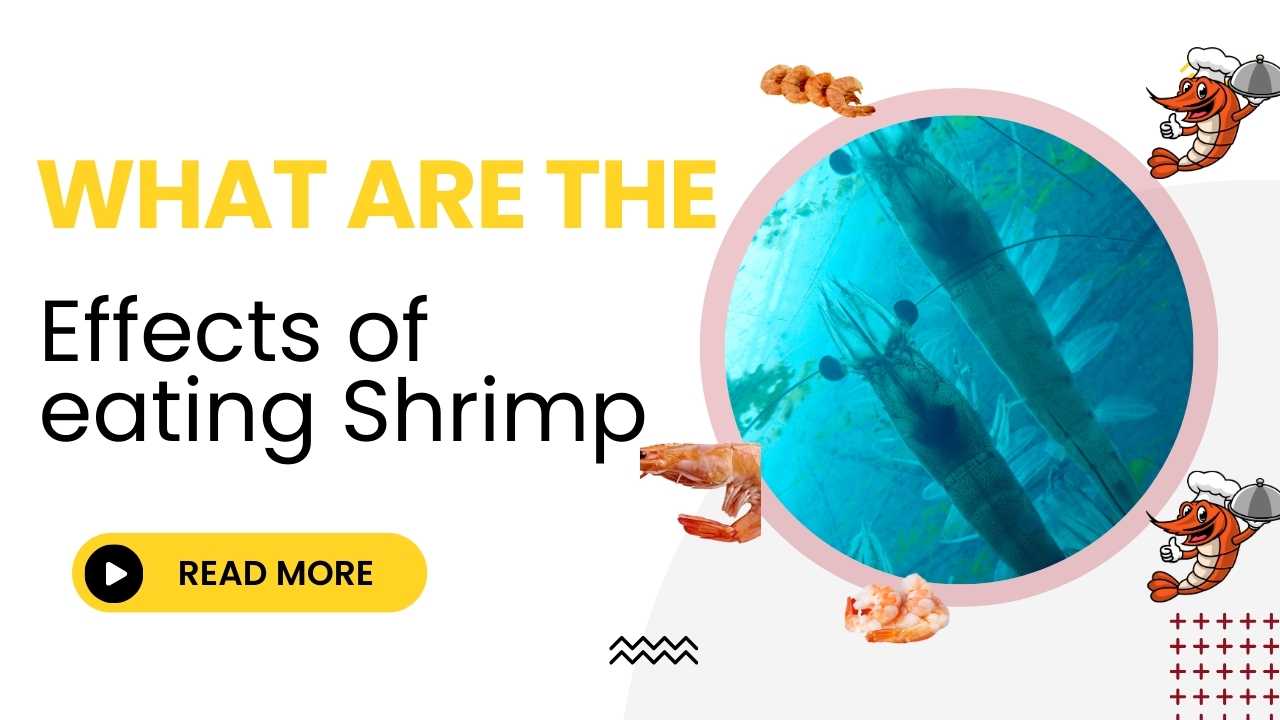Shrimp is a popular seafood choice due to its delicious taste, versatility in cooking, and nutritional benefits. However, like any food, eating shrimp can have both positive and negative effects on your health. This article explores the benefits and potential risks associated with consuming shrimp.
Read More: Is shrimp good for men?
Positive Effects of Eating Shrimp
- High in Protein: Shrimp is an excellent source of high-quality protein, essential for muscle growth and repair. A 3-ounce serving of shrimp provides about 20 grams of protein.
- Low in Calories: Shrimp is low in calories, making it a good option for those looking to manage their weight. A 3-ounce serving contains roughly 84 calories.
- Rich in Nutrients: Shrimp is packed with essential vitamins and minerals, including:
- Vitamin B12: Supports nerve function and the production of red blood cells.
- Selenium: An antioxidant that helps protect cells from damage.
- Zinc: Important for immune function and wound healing.
- Iodine: Necessary for thyroid function.
- Omega-3 Fatty Acids: Shrimp contains omega-3 fatty acids, which are beneficial for heart health, reducing inflammation, and supporting brain function.
- Astaxanthin: This powerful antioxidant found in shrimp gives them their pink color and may help reduce inflammation, improve skin health, and lower the risk of chronic diseases.
- Low in Mercury: Compared to many other types of seafood, shrimp has lower mercury levels, making it a safer choice for regular consumption.
Potential Risks of Eating Shrimp
- Cholesterol Content: Shrimp is relatively high in cholesterol. A 3-ounce serving contains about 166 milligrams of cholesterol. For most people, dietary cholesterol has a minimal effect on blood cholesterol levels, but individuals with certain health conditions (e.g., hypercholesterolemia) should monitor their intake.
- Allergies: Shellfish, including shrimp, is a common allergen. Shrimp allergies can cause severe reactions, including hives, swelling, difficulty breathing, and anaphylaxis. Those with known shellfish allergies should avoid shrimp.
- Contaminants and Pollutants: Shrimp can contain traces of contaminants like polychlorinated biphenyls (PCBs), dioxins, and other pollutants. Choosing wild-caught shrimp from cleaner waters or responsibly farmed shrimp can reduce exposure to these contaminants.
- Sodium Content: Some processed or pre-cooked shrimp products can be high in sodium, which can contribute to high blood pressure and other health issues. It’s best to choose fresh or frozen shrimp without added salt and avoid heavily processed options.
- Antibiotics and Additives: Farmed shrimp may be exposed to antibiotics and chemicals used in aquaculture. It’s important to choose shrimp from reputable sources that adhere to sustainable and responsible farming practices.
Considerations for Including Shrimp in Your Diet
- Moderation: Enjoy shrimp as part of a balanced diet. Incorporate a variety of protein sources, such as fish, poultry, legumes, and plant-based proteins, to ensure nutritional diversity.
- Healthy Preparation Methods: Opt for healthier cooking methods like boiling, steaming, grilling, or sautéing with minimal added fats and sodium. Avoid deep-frying or heavily breaded shrimp, which can add unhealthy fats and calories.
- Sourcing: Choose high-quality shrimp from reputable sources. Look for wild-caught or responsibly farmed shrimp with certifications from organizations like the Marine Stewardship Council (MSC) or Aquaculture Stewardship Council (ASC).
Conclusion
Eating shrimp can offer numerous health benefits, including high-quality protein, essential vitamins and minerals, and omega-3 fatty acids. However, it’s important to be aware of potential risks, such as cholesterol content, allergens, and contaminants. By choosing high-quality shrimp and preparing it healthily, you can enjoy this delicious seafood as part of a balanced diet.
FAQ on the Effects of Eating Shrimp
Q1: Is shrimp good for heart health? A1: Yes, shrimp contains omega-3 fatty acids, which are beneficial for heart health. However, those with high cholesterol should monitor their intake due to the cholesterol content in shrimp.
Q2: Can eating shrimp cause allergies? A2: Yes, shrimp is a common allergen and can cause severe allergic reactions in some individuals. Those with shellfish allergies should avoid shrimp.
Q3: How can I ensure the shrimp I eat is safe? A3: Choose shrimp from reputable sources, such as wild-caught shrimp from clean waters or responsibly farmed shrimp. Look for certifications from the Marine Stewardship Council (MSC) or Aquaculture Stewardship Council (ASC).
Q4: What is the best way to cook shrimp for health benefits? A4: Healthy cooking methods include boiling, steaming, grilling, or sautéing with minimal added fats and sodium. Avoid deep-frying or heavily breaded shrimp.
Q5: How does shrimp compare to other seafood in terms of mercury content? A5: Shrimp generally has lower mercury levels compared to larger fish like tuna and swordfish, making it a safer choice for regular consumption.


